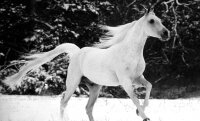2010, Word Riot Press
200 pages, trade paper
Reviewed by Nathan Huffstutter
All apologies to Fresno, but driving the 350 miles between L.A. and San Francisco, the scenery unspools in little more than a piss and a half of endless, bleached nothing. Leaving the Bay Area and heading toward Southern Oregon, the Interstate rises out of the Central Valley and winds left of center. During these next 350 miles, pretty much the same piss and a half, the trees, the elevation, the entire character changes. In this corridor, Red Bluff to Yreka to Talent, the weeds and speed give way to off-ramp drags of greasy spoons and grizzled beards, canned greens and un-ironic curios, potholes and slush. Here, where most pull over just long enough to fill up and flush out, Mike Young takes up residence.
Describing Look! Look! Feathers, Young has said the stories are about people “trying to try,” but make no mistake, this isn’t participation-ribbon or up-by-your-bootstraps trying; in these dozen stories, Young exposes character after character who are trying to trust. Trusting themselves, trusting adulthood, trusting the internet, trusting the people they just might love, all while suspecting the very suckiest, that with both sides predisposed to fuck things up, maybe the best they can do is try. These are the same twitching, fragile moments Jim Shepard engulfs in avalanche and flood and Young dares them au natural, in high school gyms and tribal casinos and Pollard Flats. And if you’ve never stopped for the restroom in Pollard Flats, let me be the first to tell you, that mannequin in the tub will haunt you way longer than any old rockslide.
Speaking of trust, Young earns ours immediately with “The Peaches Are Cheap,” two lean, clean, charcoaled pages you could easily revisit seven or eight times. Two lean, clean, charcoaled pages you should revisit seven or eight times. Damn. An unnamed Oregon town, adult siblings, our first glimpse of both the physical and emotional landscape. The brothers “drive and see things: old fences, a barbecue in a motel courtyard.” In a grocery store parking lot, they prop open the car doors and eat peaches straight from the can.
“We used to shove each other off of rope swings. We used to shove each other off of fire escapes. Now I work for the gas company. He works for the post office.”
This is not some pared-down minimalism, carving away and carving away until all that’s left is calcified and undeniable. Young’s not performing autopsies or telling you what to see – instead, he sketches, shades, and steps away. Make of it what you will. Damn.
“The Peaches Are Cheap” establishes the author’s eye and his soul, but after this sure, spare opening, the rest of Young’s stories are nowhere near as easy to get your arms around. Look! Look! Feathers’ longer narratives are rippling, expansive, exasperating parachutes, blown so full of collision and contour you couldn’t possibly smooth the surfaces or tuck in the edges. Nor should you try – rarely does imperfection show so well.
Because he’s that way, Young takes the trust he’s gained in “The Peaches Are Cheap” and immediately starts fucking with it. The collection’s second (and perhaps most fully-realized) story, “Burk’s Nub,” introduces an obese band geek who swears the pus-filled mass on his hand lets him log onto the internet. Understandably, skepticism runs high – at least among the small subset of students who care at all – and though it’s obvious Burk is using the growth to rationalize his test-smarts and earn a less-abusive brand of attention, the narrator concedes “we talk to him more since the nub.” The connection the cyst dials-up sounds suspiciously similar to the imagination, but Young doles out just enough magic with his realism to maintain uncertainty. The nub glows and shines and seems to whir, and dammit we want to be people capable of believing, people capable of trusting, but then again no one wants to be the one sorry sucker who gets taken in. Even as the narrative marches toward an inevitable burst, that surface tension holds.
The title story also balances loads of reality atop one surreal sliver. While scouring fixtures in a vacated unit, husband/wife apartment managers pop the medicine cabinet and discover an infant with a “head no bigger than the toothpaste cap.” Think J. Tillman starring in Raising Arizona, headlining alongside, well, actually Holly Hunter could wear the pants in this version too. But forget AZ, this is Dunsmuir, a slanted, marginally enchanted, three-exit mountain town. Trying to do right, the put-upon couple scramble to care for the tiny foundling, straining a partnership that traces back to a post-TD high-five at the kind of joint where “you went already sorry for something, pretending to get less sorry and practicing to get more.”
Yeah, the sentences. Young turns phrases that make you nod your head, yes, that’s how you do it, and not those Lutzies that demand their own set of brackets, but deft, insightful sentences that flow from the one before and into the one behind.
“What we liked about the dark was how we clumped,” admits the narrator of “The World Doesn’t Smell Like You,” as a group of dead-end high-schoolers confront their role model of machismo, woodshop-teacher Coach Schiel. A donkey-kick, a locker room tussle, and rumors of orchiectomy have tarnished the Coach’s (and, by extension, all) cherished masculinity, and like donkeys, teenagers don’t know too many ways to kick back. Coach Schiel scores a temporary reprieve by plying his acolytes with a fridge full of Keystone, and Young perfectly captures the turning point where the holy-shit novelty wears off, baring the particular pathos of a lone adult drinking in the company of adolescents. And, vice versa.
“The World Doesn’t Smell Like You” churns toward another narrative inevitability, and once Coach Schiel has been wrestled to the ground, boxers yanked, one of the teens offers the grim summation “There we go.” Here, though, instead of stepping away at just the right moment, Young then tacks on a where-are-they-now denouement, a catalogue which would only have been necessary had he not done his job up to that point
Considering how the glory often owes greatly to the mess, it’s hard to gauge the “good” that might have come from a firmer editorial hand. Still, Look! Look!… suffers from a conspicuous inconsistency, a great deal of which is rooted in one stylistic consistency: nine of the stories are told first-person, and in a full six of these, that narrator is easily among the least compelling players in the drama. That fly on the wallflower angle works in the high school halls of “Burk’s Nub” and “The World Doesn’t Smell Like You,” and the narrator’s ineffectuality is crucial to the dynamic of “Stay Awhile If You Can,” where even with a bloody Kleenex wadded up her nose, the narrator’s girlfriend is by far more self-contained and comfortable in her own skin than he.
In two of the less successful stories, however, Young chafes against his own narrator-as-witness, kick-starting momentum with P.O.V. gimmicks. “Same Heart They Put In You” opens with a staggering image of Napa Valley light, “The sun’s drifting up. Everything is olive oil, a spilled yawn,” but as the rear passenger in a car, the narrator is very much along for the ride. Heading back to Oakland after a party in wine country, the driver is the roommate of the narrator’s occasional lover, and in what amounts to third-hand/ after-the-fact storytelling, this roommate relates details about the party host and his unusual upbringing, raised by an odd couple of gay ex-dealers. Juxtaposed with this backward motion, there are the realities of the narrator’s present: an inert, primarily net-based relationship with the woman sleeping shotgun. The story itself fails to achieve liftoff in a manner frustratingly proportional to this relationship, and though there is a sort of truth in that, you don’t need to swallow bad cheese just to know bad cheese.
“Restart! Restore?” also employs a conceit that conceptually syncs with the storyline. After the death of his wife derails the dream of RV-ing away their twilight seasons, Orrin casts about for late-life connections while the P.O.V casts about in corresponding desperation, bouncing between two separate first person narrators, a lengthy personal e-mail sent by a never-seen character, and even a spurt of detached third-person. Again, while this conceit mirrors Orrin’s need, the stylistic grasping keeps Young from finding either a narrative foothold or the consistent voice of his primary narrator, Orrin’s puttering, also retired brother. Reconnecting, the elderly brothers talk like boys and the point is certainly to show these old men enjoying the muscle memory of talking like boys, but even when they talk like boys, old men should still have the voice of old men. With so much back and forth, however, Young never quite latches on.
Looking forward, it’s easy to imagine Young cutting out this witness/narrator and leaning more on an authoritative third person. The depth of detail is already there, and tellingly, Young’s talent and humor are so generous that even those stories that come up wanting leave you wanting more, wherever he takes up residence.







